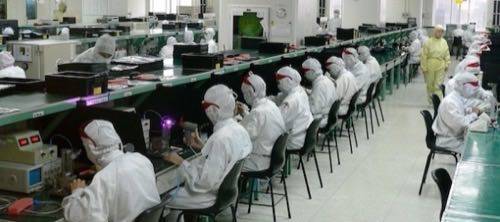
The first Microsoft Surface tablets won’t hit the streets for months, but the devices are already causing problems for other companies who make tablets and raising difficult questions about how Microsoft is treating the companies that build computers and mobile devices based on its software.
Just a day after Monday’s Surface press event, Korean electronics maker LG announced that it was discontinuing its tablet product line for now in order to focus on smartphone production. The move gave instant credence to worries that Microsoft, by making and selling the Surface itself, was screwing its hardware partners.
Is LG Surface’s First Victim?
For its part, LG denied that Surface had anything to do with its decision. “LG doesn’t see Surface competing with anything we’re focusing on at the moment,” LG spokesperson Ken Hong told Bloomberg.
Perhaps, but that doesn’t mean that Surface wasn’t “one more thing” that tipped LG’s decision to withdraw – if it even knew about the new device.
Tablet makers aren’t saying much about the Surface (Bloomberg quotes Microsoft partners giving generic reassurances of their commitment to Windows), but a Reuters report today reveals that many hardware makers didn’t have details on Monday’s announcement: “The earliest that Microsoft’s personal computing partners were told about the tablet was last Friday… according to sources in the U.S. and Taiwan technology industry who spoke on condition of anonymity.”
By launching Surface entirely on its own, Microsoft has completely departed from its traditional arrangement of licensing its software to third-party manufacturers, so called Original Equipment Manufacturers, or OEMs. Potentially, the Surface turns Microsoft into a direct competitor of any hardware manufacturer making a Windows 8 tablet.
We say “potentially” because it is not clear whether Microsoft plans to stay in the hardware game any more than it has to.
Is Microsoft Pulling a Google?
Drawing a comparison to Google’s own production of the Nexus device line for its Android phone is easy, because it often looks as if Google is thumbing its nose at its own smartphone OEMs. But Google says production of its “pure” Android devices is done only to create a reference device: a vision of what a solid Android device will look like.
Timing seems to support Google’s reference-device assertions: Nexus devices are typically produced early in an Android release’s lifecycle. But Surface is coming in after other Windows 8 tablets are already in development.
Still, Businessweek’s Ashlee Vance sees Surface as a kick in the pants for OEMs trying to figure out a decent Windows 8 tablet offering. “This does not sound like a full-on break with the PC makers. Rather, it sounds like Microsoft giving them a wake-up call: You can make something different and sexy with a bit of effort, guys,” Vance wrote.
Playing a Dangerous Game
Even if that’s Microsoft’s intention, the company is taking a big chance. Why would Microsoft jeopardize its relationships with OEMs just as it’s about to bet the company on a radically new operating system?
Perhaps Microsoft believes that the OEMs have no other computer operating system options. Linux never got its desktop game going, and Apple owns OS X lock, stock and brushed aluminum barrel. Google’s Android hasn’t set the tablet world on fire, either, and its Chrome OS is still a bit player. But there is always the possibility that manufacturers could simply opt out of the whole business.
Dell, for instance, has already made plans to cut back on its PC business by $2 billion. Enterprise and cloud computing are today’s target-rich environments for hardware vendors, so cutting back investments in PC and tablet production might not be so far-fetched – at least for marginal vendors.
Given this, it makes sense for Microsoft to position Surface as an after-the-fact reference device. The company had better hope its manufacturing partners see things that way because, whether or not Surface succeeds, Microsoft’s future depends on those partners building a robust collection of top-of-the-line platforms for Windows and the rest of its software product line.
Photo by Steve Jurvetson from Menlo Park, Calif.





















